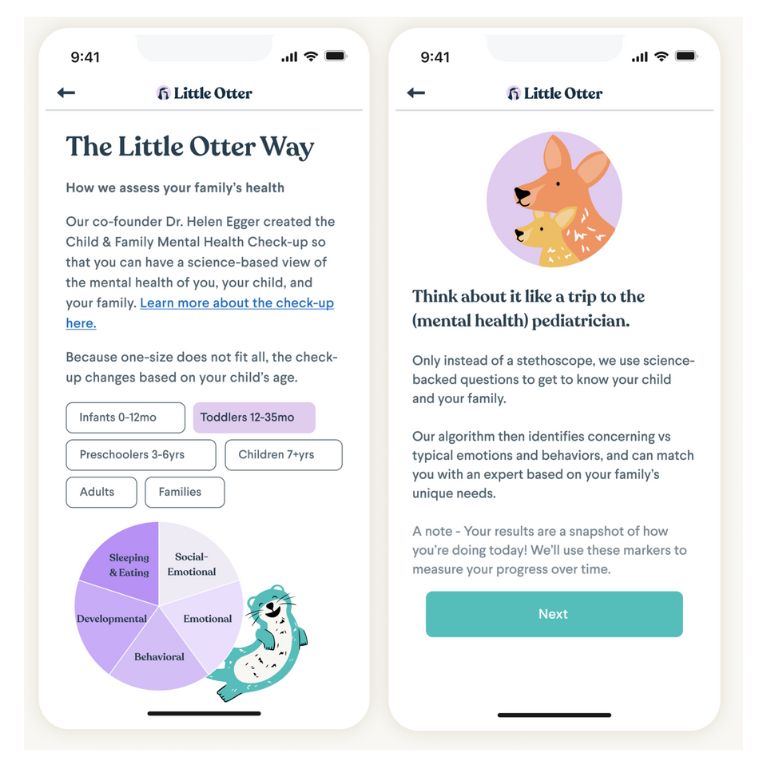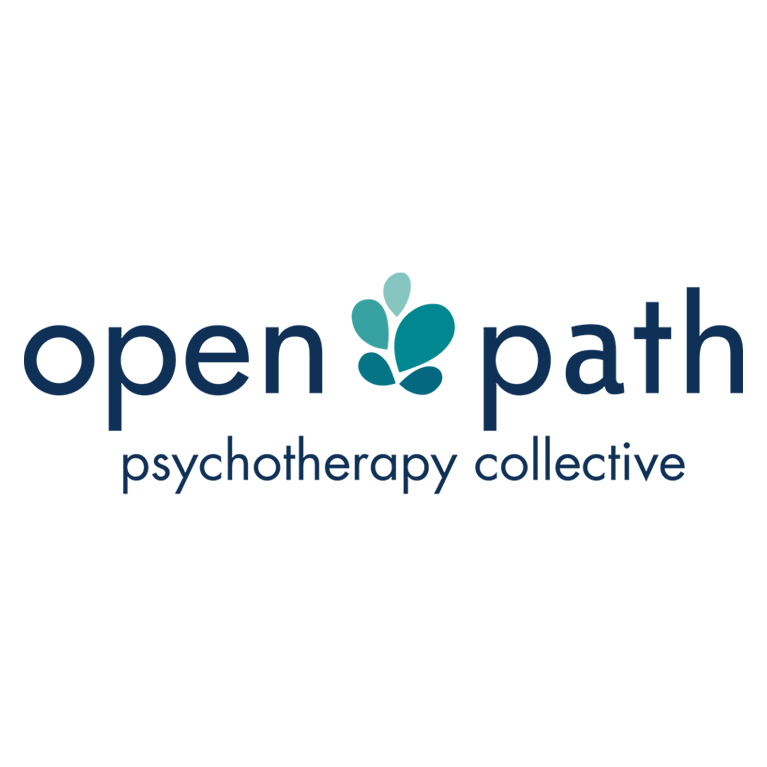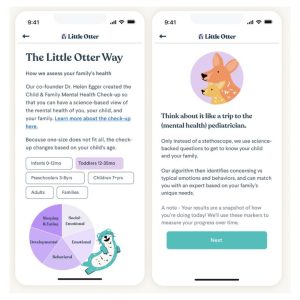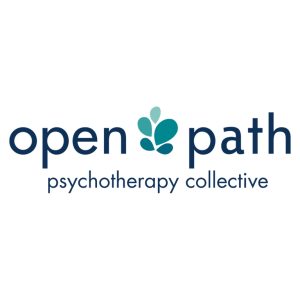Family therapy can be a valuable tool for you and your loved ones to work together to resolve conflicts, strengthen your relationships, and improve communication. As online therapy continues to emerge as an effective method for receiving mental health treatment, many platforms offer family therapy services and partner with licensed clinicians who specialize in improving connections and behaviors on a familial level.
“Family therapy can help create natural support within a family system, leading to an improved understanding of mental health issues. In particular, children and teens might struggle to articulate their concerns to parents. They don’t feel understood by parents and stop seeking support as a result. Family therapy could boost communication in general, especially about feelings and life experiences.”
Rychel Johnson, MS, LCPC, Fortune Recommends Mental Health Advisor
While in-person services may still be best for some individuals and families, virtual family counseling services can help make mental health care more accessible for others. It offers the convenience of allowing multiple family members with busy schedules to connect from anywhere at any time.
Our collaborative team of experts tested and researched the best online family therapy services that can help meet your family’s needs based on cost, availability, provider quality, and relevant experience—including providers specializing in young children and LGBTQIA+ affirming care. Read on to discover which online family therapy services stood out to us as the best.
Best overall online family therapy
If you’re considering enrolling your family in online therapy, you may consider our top pick, Thriveworks. It connects you with a vast network of mental health professionals with detailed provider biographies to help you find the best therapist to support your family’s needs. Thriveworks also offers affordable therapy by accepting over 500 insurance plans with co-pays averaging between $0 and $50.
Our picks for the best online family therapy
- Best overall: Thriveworks
- Best for families with young children: Little Otter
- Best for LGBTQIA+ families: LGBTQ Therapy Space
- Best affordable: Open Path Collective
Compare online family therapy

|

|

|

|
|
| Thriveworks | Little Otter | LGBTQ Therapy Space | Open Path Collective | |
| Rating | ||||
| Cost | $0-$50 per session after insurance, $250+ out of pocket | $195 per session | $185 per session | $30-$80 per session |
| Session type | Video, phone, in-person | Video, messaging | Video | In-person, telehealth |
| Insurance accepted | Yes | Yes | No | No |
Best overall online family therapy: Thriveworks


Key product features
What you should know
Thriveworks’ online mental health platform connects you with a network of vetted and carefully selected licensed therapists in your state. Providers specializing in family therapy can help you navigate your family’s unique challenges.
- Detailed provider profiles help you choose a therapist that best fits your family’s needs and preferences.
- If you’re covered by insurance, average co-pays range between $0 and $50.
- Thriveworks’ rigorous provider selection process narrows its network to the country’s top 4% of mental health professionals.
- Therapy services are available in 49 states and D.C., excluding Vermont.
Why we like Thriveworks as best overall
Thriveworks offers a vast network of mental health providers who specialize in family therapy and couples counseling, including licensed marriage and family therapists (LMFTs), clinical social workers (LCSWs), professional counselors (LPCs), and licensed psychologists. Thriveworks prides itself in hiring only the best providers who have been diligently screened and carefully selected. It offers customized treatment plans to help your family work together to improve communication, resolve conflict, and strengthen relationships.
Thriveworks’ platform is highly user-friendly and offers instant therapist connections. This is a significant benefit, considering how time-consuming it can often be to find a family therapist as you navigate provider availability, wait lists, and insurance verification, all while ensuring they match your needs and preferences. (11) The registration process is equally quick and painless—all you need to do is enter your email. After that, you have immediate access to Thriveworks’ Fireside courses, which are free, engaging videos related to various topics that can help support your therapy journey and overall wellness.
One of the features we love most about Thriveworks is the provider selection process, which includes the most detailed provider bios of all of the teletherapy platforms we’ve reviewed. We highlight this because your connection with your provider is one of the most essential elements for seeing treatment success. (6) The provider bios here allow you to view all the information you may need to select a clinician that meets your family’s preferences and needs. Before deciding, you can view their qualifications, experience, specialties, therapy approach, accepted insurance plans, availability, and more.
“When choosing a therapist, families usually want to know if their potential provider will be culturally competent and able to understand any concerns specific to their family’s needs. Knowing their provider is on the same page and understands them is crucial in building a trusting therapeutic relationship.”
Rychel Johnson, MS, LCPC, Fortune Recommends Mental Health Advisor
Thriveworks also helps make family therapy affordable and accessible with over 500 accepted insurance plans—including Medicare and Medicaid in some locations. On average, in-network users pay between $0 and $50 per session. If your insurance isn’t accepted, you can still participate by paying out-of-pocket, starting at $200 per session.
Thriveworks has offices in 49 states and D.C. Currently, Vermont is the only state where it’s not offered. However, I have also experienced difficulties finding a provider in my home state of Wisconsin. While it lists four clinics in my area, I have not been able to find a provider with availability. When I change to a nearby location, I’m consistently matched with 15 to 30 providers, indicating this issue may be isolated to my state.
Finally, Thriveworks customer support has consistently provided excellent service. Each time we reached out over the phone or through live chat, we were instantly connected with a real person who was knowledgeable, kind, and thorough in their support.
Check out our full Thriveworks review for more information.
What customers are saying
With about 170 reviews combined, Thriveworks scores poorly on Trustpilot and the Better Business Bureau (BBB). Most complaints focus on the billing department and some customer support issues, while positive reviews praise the therapy services.
“I appreciate my therapist taking the time to understand why I started counseling sessions, my needs, and a plan moving forward.”
Chris Windley, Verified Trustpilot reviewer
In their BBB review, Tonya S. admitted they expected the worst after reading other billing and customer service reviews. However, they stated the help they received went above and beyond to resolve their issues. They described their interaction with the Thriveworks team member, saying, “She was personable, professional, and found a possible error in filing my husband’s claims. She refunded the money immediately and is currently working on filing the claims correctly. She was awesome, and we can’t wait to hear from her about the final outcome.”
In a one-star review on Trustpilot, Jack Strong starts by praising their therapist for how professional and helpful they are. However, the billing department frustrates this user the most: “I’ve been billed an extra $300 for a session canceled because of a miscommunication, and the therapist could not provide the services I needed remotely. I’ve been chasing the billing department to dispute this charge for over six months. I’ve sent over 10 emails before getting a response back from anyone. This is unacceptable, especially from a mental health relief organization.”
Specs
| Price | $0-$50 with insurance, self-pay starting at $250 per session |
| Insurance accepted | Yes |
| Session type | Video, phone, in-person |
| Platforms | Online |
| Ages | All ages |
Best online family therapy for families with young children: Little Otter


Key product features
What you should know
Little Otter connects users to a care team specializing in treating child and family mental health. The platform’s hand-picked and thoroughly trained licensed therapists and parenting specialists can help families work together to support each other through their challenges.
- Little Otter offers therapy for children, parent support, couples therapy, and psychiatric services with medication management.
- Insurance coverage is limited to four in-network plans, but users can opt to self-pay if not covered, which costs $390 for an initial assessment and $195 per follow-up session.
- After taking the family wellness assessment, you can immediately access free wellness resources, such as educational articles, interactive activities, and self-help tools.
- Because Little Otter is geared toward treating younger children, it may not be appropriate for families with children over 14.
Why we like Little Otter as best for families with young children
Little Otter employs full-time licensed therapists specializing in treating children from birth to 14 years old, emphasizing whole-family wellness. Taking this approach, therapists can help families understand how a child’s challenges can impact relationships with parents and siblings. (5)
Litter Otter’s providers can help children and families work together to navigate a broad range of concerns, including anxiety, depression, behavioral issues, ADHD, trauma, and grief. Parents can also participate in parent coaching sessions to help support themselves and their children. This additional support is significant since the mental health of children and parents is closely connected. (9)
When you’re ready to start, you can complete a family mental health checkup or opt into a kick-off session with a care navigator, who will help answer questions, guide you through the sign-up and treatment process, and coordinate care between you and your therapist. Once you’re ready to complete the assessment, you’ll answer questions about yourself, your children’s mental wellness, your relationship with your partner, and your therapy goals.
At the end, you can view an overview with results about your mental health and your family as a unit. The report helps you understand if what you’re experiencing is normal or concerning and includes some helpful steps you can take. While we found this information useful, we discovered we would have to pay $20 for the full report.
From there, you’ll be ready for your first session, a kick-off call to help pair you with your care team. As a critical member of your team, your Care Lead helps coordinate care with your provider, performs quarterly mental health checkups, and assists with integrating care with school or childcare, medical providers, and occupational, speech, and physical therapies. Your care team will also include one or more mental health providers, such as a therapist, psychiatrist, or parenting specialist. Once paired, you can start booking sessions and messaging with your team. Apart from therapy, Little Otter also offers a vast library of wellness tools that you can access anytime. As you work together, your care team matches you with resources personalized to your family’s needs.
Little Otter is currently in-network with four insurance plans: Independence Blue Cross, AmeriHealth, Sana, and Florida Blue. If your plan is out of network, you can self-pay for sessions, request reimbursement from your insurance, or pay with HSA/FSA funds. If you’re paying out-of-pocket, the initial assessment costs $390, while standard therapy appointments cost $195 per session afterward. Little Otter offers session bundles that help you earn small discounts. Still, we recognize these high self-pay costs may be out of reach for some families.
One of Litter Otter’s biggest drawbacks is its limited availability. Services are only available in 13 states and Washington, D.C.
To discover more options, visit our guide on the best online therapy for kids.
What customers are saying
Finding independent reviews about Little Otter is challenging as it hasn’t been reviewed or rated on Trustpilot or the BBB yet. However, of the 23 reviews from Apple App Store users, we found a lot of positivity, with a 4.3 out of 5 average rating.
In their review in the Apple App Store, “clifford10101” shares, “As a parent of a toddler, Little Otter has been a game changer. I was able to get mental health care for my child quickly. Other clinics and hospitals have given me wait times of months. I could schedule the welcome call within days and begin care shortly after. The quality of care is also amazing. The amount of rigor that goes into their scientific approach can be seen through their therapy sessions. The lengthy assessment can feel daunting, but I like that the company is invested in learning about my family, not just my child. I think it’s worth the upfront investment. This is what high-quality mental health care should look like.”
“It is everything they say it is. No waitlists, great therapists, and resources tailored to your family’s needs.”
”AndresI08”, Apple App Store user
Unfortunately, “freeflow372” shared a different experience where they felt overcharged for the first call. In their Apple App Store review, they wrote, “We had our initial consultation, which we paid $90 for. This 30-minute meeting was time for Little Otter to tell us how they work, what they do, who we will interact with, how to download the app, and how to schedule future visits. In the end, we were pushed to buy a ‘pack’ of visits (without ever meeting the therapist we would work with) to save money.”
Specs
| Price | $195 per session, $390 for initial assessment |
| Insurance accepted | Yes |
| Session type | Video, messaging |
| Platforms | Online, mobile app |
| Ages | 0-14 and 18+ years old |
Best online family therapy for LGBTQIA+ families: LGBTQ Therapy Space


Key product features
What you should know
LGBTQ Therapy Space provides a safe space for individuals and their families to connect with community members and a network of contracted mental health professionals who have extensive training and experience working with LGBTQIA+ individuals.
- You can request your therapist of preference or fill out a questionnaire to be matched with one who best suits your needs and preferences.
- While insurance isn’t accepted, you may be eligible for reimbursement by your insurance company for up to 60-80% of your therapy costs.
- Users can engage in individual, couples, and family therapy.
- Therapy services are available in 17 states and D.C.
Why we like LGBTQ Therapy Space as best for LGBTQIA+ families
As an LGBTQ-owned and operated organization, LGBTQ Therapy Space devotes its services and online platform to creating an understanding and inclusive community for LGBTQIA+ individuals and their families. The platform connects you with a network of contracted mental health providers licensed to practice in your state. The LGBTQ Therapy Space mission is rooted in providing therapy sessions that allow individuals to open up about their thoughts, feelings, and experiences on their journey to developing a more profound sense of self-love and acceptance, leading to greater well-being and confidence in navigating life.
“Family members who belong to the LGBTQIA+ community need to feel understood by their therapist, whether the therapist is also LGBTQIA+ themselves. Despite many therapists claiming to be allies of the queer community, they may not be specially trained in working with these individuals. Lack of training can cause potential harm to certain populations.”
Rychel Johnson, MS, LCPC, Fortune Recommends Mental Health Advisor
LGBTQ Therapy Space stands out to us for its commitment to providing a solution to an incredible need. Individuals who identify as LGBTQ are more likely to experience mental health conditions, substance use, and thoughts of suicide compared to heterosexual and cisgender peers. (12) Yet, less than 20% of mental health clinics offer LGBTQ-tailored programs. (4)
The licensed therapists on this platform have undergone extensive training to understand the unique characteristics and challenges of being a member of the LGBTQIA+ community. Moreover, their understanding comes from personal experience as transgender, non-binary, gender-conforming, bi, lesbian, and gay individuals.
Additionally, LGBTQ Therapy Space recognizes the importance of going beyond individual mental health and addressing support on a family level. It’s common for families to encounter complicated feelings and experiences when a family member is part of the LGBTQIA+ community. Many therapists on this platform have comprehensive training and experience working with families to help work through the diverse challenges you’re facing while improving communication, understanding, and support.
Before starting therapy, you can browse the available providers in your state and review their bios to understand their qualifications, specialties, availability, and guiding principles. While these bios can help get to know the providers, we appreciate that LGBTQ Therapy Space takes it one step further than that. You can also participate in a free 10-minute video consultation with your therapist to get an authentic feel for your connection and ensure they’re a good fit.
Once you feel comfortable with your therapist, you can schedule your first therapy appointment. The 50-minute appointments are conducted through Zoom and cost $185 per session for families or $155 for individual therapy. Unfortunately, LGBTQ Therapy Space does not accept insurance plans. However, they will provide a superbill you can submit to your insurance for possible reimbursement of 60% to 80%.
Additionally, therapy services are only offered in 17 states and D.C. We hope to see these services continuing to expand as LGBTQ Therapy Space helps close the gap in mental health care created by a shortage of LGBTQ+ affirmative health care providers. (7) Because this platform doesn’t offer psychiatry services, you also won’t be able to access medication management here. If that is one of your needs, we recommend coupling this therapy with one of the best online psychiatrist services.
LGBTQ Therapy Space does not offer crisis care. If you or a loved one are experiencing a crisis or are in danger, please call 988, text REASON to 741741, or call the Trans Lifeline at 1-877-565-8860.
Specs
| Price | $185 per session |
| Insurance accepted | No |
| Session type | Video |
| Platforms | Online |
| Ages | 12+ years old |
Best affordable online family therapy: Open Path Collective


Key product features
What you should know
Open Path Collective offers an expansive marketplace that connects you with contracted therapists who provide affordable mental health care for the uninsured and underinsured. The providers specialize in treating people of all ages through individual, couples, and family therapy.
- Open Path acts as a central point to connect you with a provider network that includes almost 29,000 private practice licensed therapists across the U.S. and Canada.
- Therapists offer a sliding-scale fee system, with appointments ranging from $30 to $80, depending on your financial situation and provider experience.
- Some providers offer the option to participate in in-person therapy sessions if that fits your family better.
- If you’re adequately insured or your household income is over $100,000, you are ineligible to receive therapy services through Open Path Collective.
Why we like Open Path Collective as best affordable
Open Path Collective’s commitment to providing low-cost therapy to the uninsured and underinsured populations drew our respect. With the cost of care remaining a significant barrier to seeking mental health care in the U.S., this platform is helping remove that obstacle that may be preventing families from seeking the care they deserve. (1)
Rather than offering services directly through its platform, Open Path Collective is a hub to connect users to private practice therapists licensed in their state. As you search for a therapist, you can filter by modality so you’re only seeing those who offer family therapy. When I searched my state of Wisconsin, I found 32 providers specializing in family therapy. I was pleasantly surprised by this broad availability, considering other platforms couldn’t connect me with any therapists.
Before choosing your therapist, you can view each provider’s detailed profile to understand their specialties, approach to therapy, and availability to ensure they’ll be a good fit for your family’s therapy and scheduling needs. Furthermore, you can connect with providers to ask questions and get to know them before scheduling appointments. I emailed three therapists to get more information about their family therapy approach. While I received a message saying it could take up to four days to hear back, one therapist reached out within 2.5 hours and another in less than 24 hours.
As one of the best affordable online therapy platforms, Open Path Collective’s therapists offer appointments using a sliding scale fee. You’ll work with your therapist to determine your exact cost based on your family’s financial situation. Sessions cost between $40 and $80, with sessions as low as $30 if you choose to work with a student intern. The student interns through Open Path are individuals in the process of completing their clinical practicum or internship for their graduate studies and must be practicing under the direct supervision of a licensed provider. By partnering with these interns, Open Path is helping further expand access to care that can otherwise be limited by lack of provider availability. Moreover, studies have shown that working with a student therapist can be as effective as working with a licensed therapist in treating many mental health concerns. (10)
Upon registration, you must also pay a one-time $65 lifetime membership fee that helps the organization continue to function well as a nonprofit. Only one family member needs to register for an Open Path Collective account, so you’ll only need to pay one fee for your whole family to participate.
To be eligible for services through Open Path Collective, you must indicate that you don’t have health insurance or are underinsured—meaning you have a high deductible or co-pays through your insurance are over $70 per session. If you’re ineligible due to insurance coverage, you can browse our list of the best online therapy platforms that take insurance.
Additionally, Open Path asks that families with a household income over $100,000 seek care elsewhere so its services remain available for those in greater need. While these guidelines are clear, we weren’t required to provide proof or in-depth documentation of our financial status while registering. We appreciate that it makes the process quicker and simpler for those who may already be feeling overwhelmed as they seek mental health care.
What customers are saying
Social platforms and discussion boards are rich with positive reviews from Open Path Collective users. With almost 200 reviews on Facebook, Open Path earns 4.9 stars. Most praise the platform for making finding high-quality, affordable mental health care easy.
Through their Facebook review, Arielle Mananquil recommends Open Path to other individuals.
“Open Path is an incredibly helpful and affordable tool for finding a therapist. They’re fast with replying, have reasonable rates, and produce great therapists. I couldn’t recommend them enough.”
Arielle Mananquil, Facebook reviewer
On a Reddit discussion, “hren018” shares, “I’ve had an amazing experience with my therapist through Open Path. I pay $50 per session for a fully licensed counselor with over five years of experience.”
While Reddit user “No_Pattern_7160” has had positive experiences with Open Path and feels it is a valuable and ethical resource, they do mention some potential limitations: “I do find in bigger cities it’s a bit more of a solutions-based, short-term-focused model, but that might just be due to the supply and demand of a larger, more expensive market. However, I will say the quality of therapists on the site is very high. Unfortunately, I don’t remember the customer service being very helpful.
Specs
| Price | $30-$80 per session |
| Insurance accepted | No |
| Session type | In-person, telehealth |
| Platforms | Online |
| Ages | All ages |
How we test online family therapy
In every Fortune teletherapy review, we feature services that have undergone meticulous evaluations and testing by writers with firsthand mental health experience. Claims made throughout the review are backed by clinical research and evidence-based practices. Qualified mental health experts and fact-checkers then analyze the information to ensure accuracy and reliability. Read more about Fortune’s teletherapy testing methodology here.
Therapist quality—30%
High-quality teletherapy should be delivered by certified and experienced therapists who excel at offering a personal and professional experience. Users should not question their provider’s qualifications or feel like just another case to be managed. Here’s what we look for:
- Expertise
- Personalization
- Interaction quality
Accessibility and convenience—30%
Teletherapy offers a solution to many potential barriers that restrict individuals from seeking therapy in person, including scheduling challenges, lack of transportation, or physical limitations. Virtual therapy services can help provide convenience that allows users to seek, engage with, and benefit from mental health services. To evaluate each platform’s accessibility, we assess:
- Ease of use
- Availability
- Platform reliability
Cost and value—20%
Without insurance coverage, mental health services can be out of reach for many people who can’t afford high out-of-pocket costs. With rising healthcare costs alongside an increased need for mental health care, our team finds it essential to assess the cost-effectiveness of each teletherapy service we review.
Here’s what we factor into a teletherapy’s cost and value rating:
- Pricing transparency
- Insurance and coverage
- Value for money
Support and resources—10%
Service quality during a teletherapy session is only one piece of the puzzle. We must continue to practice healthy mental health habits even after each session concludes. With the help of additional resources and support, clients can continue their therapeutic work and deepen their understanding of mental health issues and coping strategies.
Our factors in this rating include:
- Supplementary materials
- Customer support
- Aftercare.
Privacy and security—10%
The convenience of online mental health support isn’t without risks. A critical component of any teletherapy service is its commitment to maintaining client confidentiality and data protection. Throughout the vulnerable process of sharing mental health information and stories, teletherapy platforms are responsible for protecting user information.
Here’s what we’re looking for:
- Compliance with HIPAA and data protection laws
- Encryption and security measures
- Anonymity options.
What is online family therapy?
Online family therapy, often called teletherapy, is talk therapy conducted remotely through digital platforms. Therapists and clients usually connect using video conferencing, phone calls, text messaging, or a combination of communication methods. (11)
Family therapy can help families improve communication, resolve conflicts, strengthen relationships, and address mental health concerns and substance use. Therapists may use various techniques, such as functional family therapy, marriage/couples therapy, structural family therapy, or strategic family therapy, to help families achieve this.
Because therapists and clients can join sessions from anywhere, online therapy helps expand mental health care access for many. Family members can participate from the same space and device or join from various locations if distance, schedules, or other circumstances keep them apart.
When working with a therapist, families may join sessions together or individually to overcome challenges and develop skills to help themselves and their families. Moreover, family therapy isn’t limited to only those who share your DNA. You choose who to bring as part of your family, whether parents, children, grandparents, in-laws, or any individuals you share a close relationship with.
When to seek therapy
Families can seek therapy at any time, regardless of whether they’re experiencing distress or challenges. Therapy can be utilized as a proactive approach for families. However, some situations may indicate a greater need to work with a mental health professional, including:
- Adjusting to significant changes—moving, adoption, childbirth, divorce, marriage/remarriage
- Relationship conflicts between partners, parents and children, or siblings
- Facing challenges such as major illness/injury, financial problems, or infidelity
- Coping with grief and loss
- Family members—adults or children—experiencing mental health conditions or substance use
- Coping with a family member’s chronic illness or terminal illness
Types of online family therapists
As you browse online therapy platforms, you may notice many different types of mental health professionals offering family therapy services. While they may hold various titles, they are all licensed mental health professionals who specialize in working with families, couples, and children.
Licensed marriage and family therapists (LMFTs)
Marriage and family therapists are licensed mental health professionals who have earned a master’s degree or higher and have specific education and clinical experience related to marriage and family therapy. They can help individuals, couples, and families navigate complex challenges. They also address the family system, relationship problems, and mental health conditions.
Licensed clinical social workers (LCSWs)
Clinical social workers are also masters- or doctoral-level licensed mental health professionals with extensive education, training, and supervised clinical experience. They can provide counseling, evaluation, treatment, and case management for individuals and families experiencing mental health concerns and other challenges.
Licensed professional counselors (LPCs)
Like LMFTs and LCSWs, professional counselors complete masters- or Ph.D.-level mental training and education. These providers can work with a diverse range of clients to diagnose and treat mental health disorders, substance use, and behavioral issues. Those offering family therapy often complete additional training to specialize in marriage and family counseling.
Psychologists
While requirements vary by state, Licensed Psychologists typically must earn a doctorate in psychology (PhD or PsyD), complete additional postgraduate training, undergo supervised clinical experience, and meet other licensure requirements. Psychologists treat a wide range of people and mental health problems. They are trained to assess, diagnose, and treat individuals and families through various therapeutic techniques.
As you consider these various types of therapists, it’s important to note that they are unable to prescribe medications. If medication is indicated as an appropriate part of your treatment plan, you will need to see your primary care provider or a licensed psychiatrist for that.
Benefits of online family therapy
While online therapy offers many benefits, one of the most significant advantages is that it improves the accessibility of mental health care for families. Various challenges can make it difficult for families to participate in therapy, such as:
- Busy schedules
- Difficulties finding an in-person therapist due to location or availability
- Family members separated by distance
- Lack of transportation
- Fear of judgment or stigma
Online therapy offers more convenient and attainable services by allowing family members to join from anywhere, anytime. Having access to care is pivotal as families often experience significant benefits from participating in family therapy. In fact, according to the American Association for Marriage and Family Therapy, almost 90% of people who participate in family therapy say they’ve experienced improvement in their mental health. (2) (11) With teletherapy services rising in popularity since the COVID-19 pandemic, studies have shown that online family therapy can be as effective as in-person care. (8)
How to choose the best online family therapy service
Knowing what you’re looking for in your online family therapy search can help make the process quicker and simpler. Consider your family’s specific needs and preferences, such as the ones discussed below.
Provider qualifications
Finding a certified and licensed mental health provider is vital to receiving the best care when seeking any type of therapy. Most platforms include information about the kind of therapists hired or provide individual profiles that list therapist credentials. Finding a provider with additional training and experience with family, child, and marital challenges and concerns can be especially helpful when involving your whole family.
Appointment availability
Fitting appointments into an individual’s busy schedule is one thing, but coordinating among multiple schedules can be increasingly difficult. On most platforms, you can view provider availability before committing to any appointments or other costs. Consider finding a service with therapists who frequently offer the times of day or days of the week that work best for your family.
Therapy methods and format
While it can be best for all members of the family to be involved in therapy and working together, that doesn’t mean you always have to participate in group sessions. Some families may prefer to work with a therapist individually, together, or both.
Additionally, how you communicate with your therapist can be a critical factor. Many online therapy platforms offer video conferences and phone calls, while others may also include provider messaging or the option for in-person appointments. You’ll get the most from your therapy if you and your family are in a comfortable environment that allows you to be open, honest, and fully engaged.
Cost
Financial stress can both cause and amplify stress and mental health issues within a family unit. (3) Therapy should help your family overcome these challenges, not add to them. That’s why it’s important to consider cost when searching for a therapy service. If your insurance covers family therapy, finding a platform that accepts your plan can help significantly reduce the costs. If you’re uninsured or underinsured, that may not be possible for you. Thankfully, some platforms work with providers to offer sliding fee scales. In those cases, you often pay as little as $30 to $70 per therapy session.
What to expect in online family therapy
If you’re new to family therapy, it’s normal to wonder what to expect before you start. While approaches to family therapy can differ based on the therapist and your family’s needs—which we’ll explore below—you can expect some similarities regardless of the who or how.
First and foremost, you should expect to talk a lot with your therapist. Talk therapy is the foundation that can help you uncover your family’s problems and understand each other’s perspectives, strengths, and weaknesses. If multiple family members are present, the therapist helps guide the conversation, so everyone has the opportunity to talk in a safe, judgment-free environment.
Therapist Johnson suggests a few tips for preparing for an initial family therapy session. “Family members ought to try to connect on their goals for pursuing therapy,” she says. “While not everyone will agree on goals, each family member should have a voice. Everyone participating needs to gather information they want to share at the first session–it’s helpful to gather relevant information about your history ahead of time. Lastly, take a few minutes to collect yourself and prepare for the session. Being nervous is normal, but you can breathe and relax to get more comfortable.”
When conflict is present, your therapist can help you learn skills to work through it and make daily life easier. For example, you may explore communication techniques, anger management strategies, calming exercises, and stress reduction practices.
Your therapist may also ask you to participate in activities incorporating conversation and strengthening bonds. Children often feel more relaxed and open to sharing when playing, so you may be encouraged to engage in free play or specific games that can help create positive family interactions.
Approaches to online family therapy
Family mental health specialists can use many different approaches to help support your family. The type of therapy offered to your family will depend on your family’s particular circumstances and needs as well as the therapist’s experience.
Some of the most common approaches to family therapy include:
- Functional family therapy (FFT): This intensive, short-term approach can benefit families with children experiencing behavioral issues. Over about 12 to 16 sessions or three to four months, it can help families address any family dynamics that may be contributing to the behaviors while improving communication, enhancing parenting skills, and engaging in positive reinforcement.
- Strategic family therapy: Another short-term care model, this approach to treatment also focuses on families with children or adolescents experiencing behavioral issues. Therapists concentrate on understanding how family members interact with each other and how those behaviors may impact the child’s behavior. Then, the therapist helps the family make positive structural and behavioral changes in the family environment.
- Marriage counseling/couples therapy: As the name suggests, this type of therapy involves spouses or partners who wish to work through challenges related to their relationship, parenting, financial distress, and understanding and supporting a partner’s mental health conditions.
- Structural family therapy: In this approach, therapists focus on the family dynamic concerning inner relationships, boundaries, and hierarchy. They focus on interactions between family members to help bring about positive changes.
- Systemic family therapy: This type recognizes that each family member holds multiple roles within the family unit. For example, an adult may be a spouse, parent, and child to their parents. Therapists focus their care on individuals in the context of their relationships with others, which also takes into consideration cultural, religious, and political views and socioeconomic status.
Questions to ask potential online family therapists
As you consider your therapist options, it may help to prepare some questions that can help you and your family gauge if they’re the right fit and make sure you can make the most of your sessions together. You can jot down a list of helpful questions to help you get to know your therapist better, set expectations for how you’ll work together, and communicate your therapy goals.
For many platforms, you can find information on the website regarding the program structure, general therapy approach, and appointment costs. Additionally, you can often find provider profiles with helpful information about the therapist’s education, experience, specialties, availability, and more. Those are excellent questions to help you get started if that information is unavailable. To help you gain a deeper understanding of your therapist and the process, you may also consider asking:
- How will we work together to determine my family’s therapy goals?
- What will our family’s treatment plan look like?
- How will we measure progress as we work together?
- How much experience do you have treating families with challenges similar to ours?
FAQs
What is the most effective type of online family therapy?
The most effective online therapy for your family will depend on your situation and goals. It will only work if you can actually attend, so it should cater to your family’s needs for accessibility and cost. Once you’re in therapy, your provider can help determine the most effective therapy approach based on your circumstances and challenges.
What is the difference between family counseling and family therapy?
Often used interchangeably, family therapy and family counseling both refer to working with a mental health professional to help your family work through problems, improve communication, and strengthen relationships. However, you may see differences in therapist credentials and experience that impact the provider’s approach to treatment. For example, a licensed marriage and family therapist may use techniques different from those of a licensed professional counselor.
When should you consider online family therapy?
Online therapy may be an excellent solution if you feel your family could benefit from additional help and support, regardless of how big or small your issues seem. Seeking help from a mental health professional can help your family work through conflicts and challenges while improving communication, strengthening relationships, and keeping your family functioning well together.
How long should I be in online family therapy?
You will work with your therapist to determine the length of your therapy treatment plan based on your family’s unique situation. While many treatment plans focus on brief interventions that last about 12 sessions on average, some families may need longer-term support to work through more complex issues. (2)
What are the disadvantages of online family therapy?
While online family therapy offers many benefits, it can also have pitfalls. Because the process relies heavily on technology, families, and therapists may encounter issues with internet connectivity or availability that can prevent or disrupt their sessions. Additionally, some individuals may have concerns about privacy and how their sensitive information is being protected.
Furthermore, online therapy may not be recommended if your family’s situation is more complex or involves one or more serious mental health concerns. In those cases, in-person treatment may be recommended in place of teletherapy.
Is online family therapy covered by insurance?
Teletherapy, or online therapy, is often covered by many insurance plans. Still, you should contact your insurance provider to verify your plan details and ensure your family is covered based on your situation. Additionally, some platforms partner with different insurance plans and often offer to check into your coverage for you.
Our experts
Rychel Johnson, M.S., LCPC
Rychel is a licensed clinical professional counselor in Kansas. She owns a private practice specializing in anxiety treatment and social skills development. Rychel also enjoys extensive road trips and spending time with her husband, daughter, and two cats.
Krista Manning
Krista Manning is an accomplished medical copy editor and fact-checker who stands out in the pharmaceutical, health, and wellness domains. With a meticulous eye for detail and a command of medical language, Krista ensures the accuracy and clarity of content. Beyond her professional expertise, Krista is an advocate for mental health awareness. Recognizing the crucial intersection of psychological and physical well-being, she actively contributes to projects that promote mental health awareness within the healthcare narrative. Krista’s commitment extends beyond the pages she edits, emphasizing the holistic nature of health communication.

Corey Jungwirth, NBHWC
Fortune Recommends Staff Writer
About Author
Corey Jungwirth is a National Board Certified Health & Wellness Coach with over 11 years of experience working in health and wellness. Additionally, she has earned certifications as a Behavioral Health Coach and Lifestyle Medicine Coach. For over five years, Corey has enjoyed combining her wellness knowledge with her passion for writing. When she’s not writing about it, Corey enjoys engaging in her own health by running, taking Peloton classes, and playing soccer and volleyball. She also enjoys spending time with her family, reading, and being outdoors as often as possible. Corey lives in a cozy home in the woods in Wisconsin with her two kids, husband, and dog, Kona.
